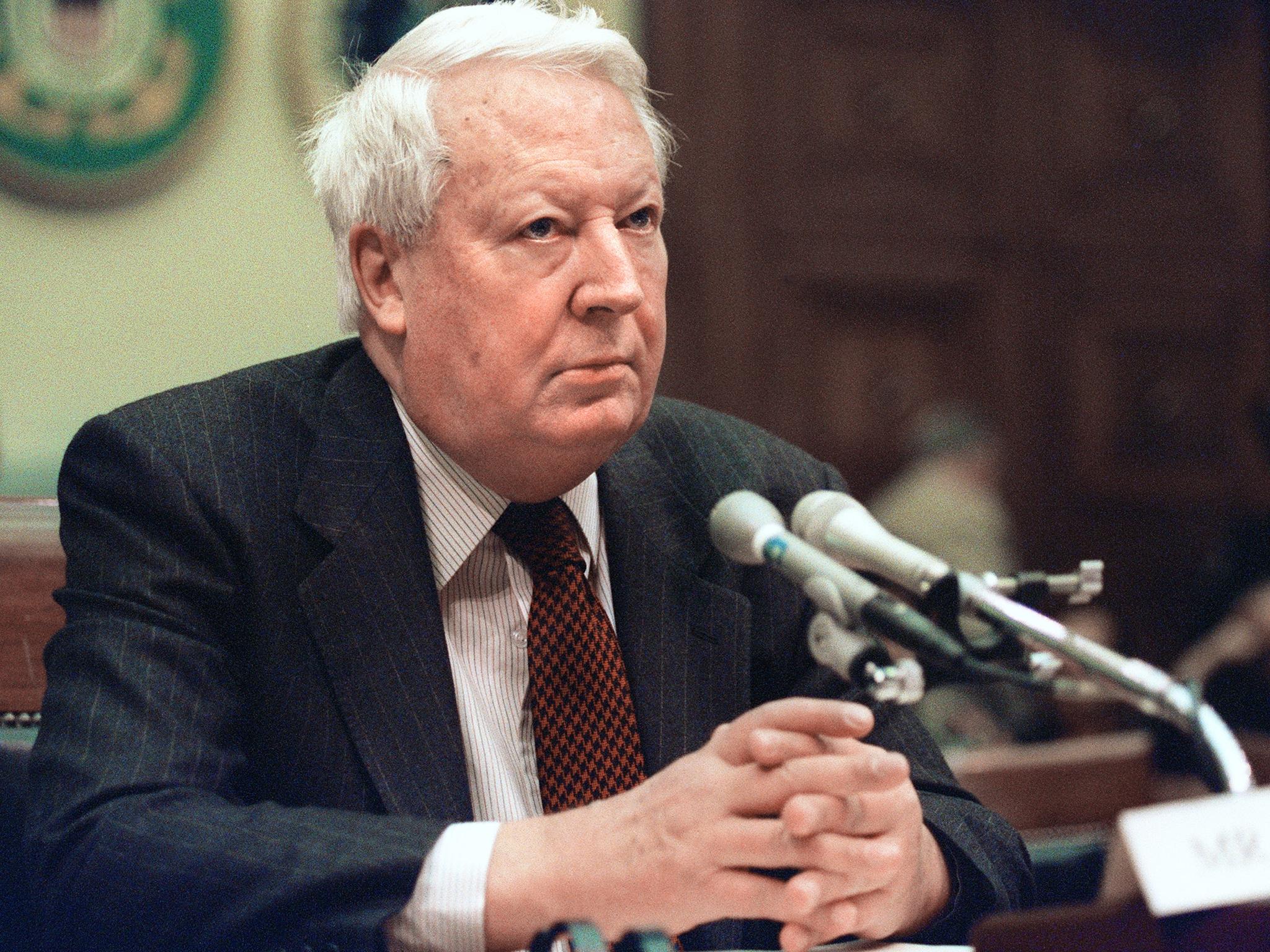I knew Edward Heath – this is what he was really like
I was at a media conference where Heath declared cheerfully to us newspaper reporters that we were all idle parasites. His happy grin told us that we could take offence or take a joke: he really did not care which


Your support helps us to tell the story
From reproductive rights to climate change to Big Tech, The Independent is on the ground when the story is developing. Whether it's investigating the financials of Elon Musk's pro-Trump PAC or producing our latest documentary, 'The A Word', which shines a light on the American women fighting for reproductive rights, we know how important it is to parse out the facts from the messaging.
At such a critical moment in US history, we need reporters on the ground. Your donation allows us to keep sending journalists to speak to both sides of the story.
The Independent is trusted by Americans across the entire political spectrum. And unlike many other quality news outlets, we choose not to lock Americans out of our reporting and analysis with paywalls. We believe quality journalism should be available to everyone, paid for by those who can afford it.
Your support makes all the difference.Towards the end of his life, Edward Heath used to invite small groups of journalists to dinner at his home in Salisbury. These events were usually held in the autumn, shortly before the annual Conservative Party conference. I was invited more than once, and everything I have to say about him is coloured by my having accepted his hospitality. I was rather fond of the cantankerous old egotist.
His fellow Conservatives despised him for his rudeness, egoism and relentless capacity for nursing a grievance over an imagined insult. I thought there was something tragically magnificent about his lonely, wounded self-regard.
Arundells, his grand house by Salisbury Cathedral, was more stately home than a place of residence. Its many monuments to his ego included a Steinway piano whose top was covered in dozens of photographs of Edward Heath in the presence of the powerful or famous, including more than one Pope and some very recognisable Chinese communists.
There was an occasion when he was surrounded by a gaggle of journalists wanting his comment on some event. One was a broadcaster who came with a camera crew, so was allowed to ask the first question. When that interview was done, Sir Edward turned to the newspaper journalists, expecting more questions, but we all thought we had enough. He declared cheerfully that we were all idle parasites. His happy grin told us that we could take offence or take a joke: he really did not care which.
The pleasure he took in every setback his party suffered after it sacked him was contagious. Late in 1993, the Conservatives were going through one of their periods of convulsive infighting over the EU, when there came sobering news from across the Atlantic that in the Canadian general election, the Progressive Conservatives had been reduced overnight from 156 MPs to just two. This disaster cheered Edward Heath up no end. It was a lesson to the party’s anti-EU right wing, he declared: if they continued their destruction behaviour, the British Conservative Party might also find itself with only two MPs. And he added: “As I look around, I ask myself: who will the other one be?”
He could not forgive Margaret Thatcher for ousting him from the party leadership and then dashing his hopes of being appointed Foreign Secretary in 1979 by sending him a curt note which she signed simply “Margaret Thatcher”. In 1998, he was finally persuaded to appear on the platform at a Conservative conference sitting alongside Thatcher. His grumpy expression, caught on camera, was an indication of the bad grace with which he did so.
I was one of those who dined with him the evening before that stage appearance. A fellow guest asked when he had last spoken to Margaret Thatcher. Speaking slowly and ponderously, as if he were making a solemn announcement he replied: “I last spoke to Margaret Thatcher on the … of January,” giving a precise date, which I think was the 26th.
Hearing, I think all of us were taken aback that it was apparently only nine months since the two ex-prime ministers had spoken. But Sir Edward had not completed his pronouncement: he had mischievously paused for dramatic effect, before adding “…1978”. The Incredible Sulk, as it was known in political circles, had endured for more than two decades, and would continue until he died.
The journalists at these gatherings were always all male, so far as I can recall. Our host would place himself in the centre of this circle of younger men and wallow in the attention, like a pantomime dame. The rumours that he was homosexual had been around so long that when I was at university I was jokily informed that the Dean of our college, who was also gay, was Edward Heath’s lover – a claim for which there was no evidence, by the way.
He was also deeply sexually repressed – for which he cannot be blamed. Until he was 51 years old, all homosexual activity between men, even consensual sex in private, was punishable by a prison sentence. Even when consensual gay sex was partially decriminalised, in 1967, Parliament did not intend that it should become socially acceptable. There was a widely held assumption that all male gays were paedophiles, and therefore a menace to young boys.
After the exposure of the spies Guy Burgess, John Vassall and others, there was the added suspicion that any gay man in a sensitive job was an actual or potential traitor. Arrests of gay men on one pretext or another continued apace. During Edward Heath’s 51 years in Parliament, from 1950 to 2001, no Conservative MP ventured to admit being gay, though many were. The first to come out voluntarily was Sir Alan Duncan, in 2002. Others married, for self-protection. Some had children.
Heath never married, and never discussed his sexuality. My assumption was that he abstained from any sexual contact with anyone all his life, to avoid the risk. He did not seem to me to have that streak of manipulative nastiness or sickness of mind that would make him want to abuse a child, even if he was prepared to hazard everything he had worked for in his life, and face ruin and imprisonment, for the sake of passing gratification. He was a very flawed character, but I struggle to believe he was that bad.
Join our commenting forum
Join thought-provoking conversations, follow other Independent readers and see their replies
Comments